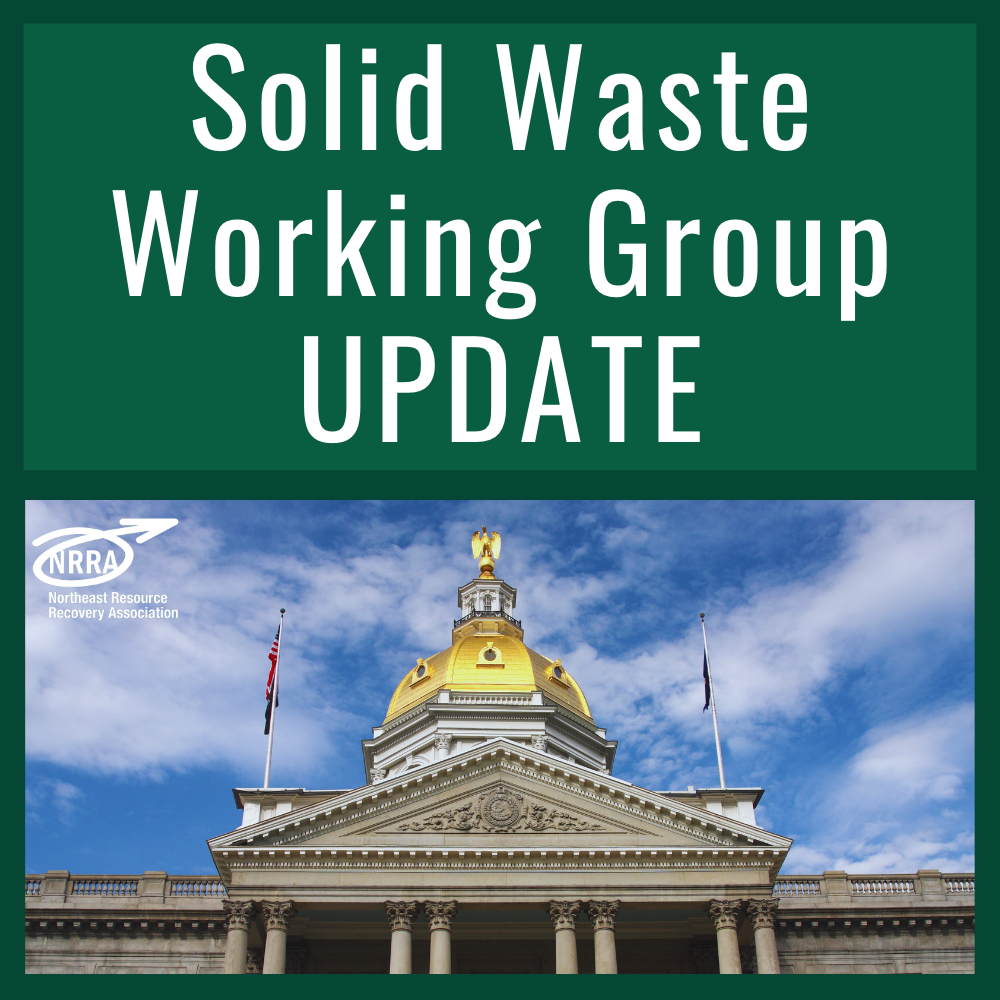Exploring EPR at the Recent NH Solid Waste Working Group Meeting
On Friday, March 22nd, NRRA hosted another NH Solid Waste Working Group (SWWG) meeting while NHDES offices continue to be unavailable due to an HVAC renovation.
SWWG attendees heard an informative Extended Producer Responsibility (EPR) 101 Presentation from Resa Dimino of Signalfire Group. NHDES also shared that it is applying for an implementation grant for the EPA Climate Pollution Reduction Grant program that may lead to future grants for municipalities to improve their waste management.
Extended Producer Responsibility
One of the SWWG's responsibilities is to "review and make recommendations for changes to the state's existing solid waste reduction, recycling, and management policies, programs, goals, and initiatives."
The NHDES Solid Waste Management Plan includes two actions related to evaluating EPR programs:
Action 3.13 begins with "evaluate and identify waste disposal bans, mandatory recycling laws, and/or EPR programs that have potential to significantly improve diversion in New Hampshire."
Action 3.18 states "based on the results of Action 3.13, explore Product Stewardship and EPR programs to encourage recycling of certain items, including plastics, rechargeable batteries, electronic devices, paint, difficult-to-recycle packaging materials, bulky wastes such as mattresses, and beverage containers (e.g., a beverage container deposit law)."
Resa shared that in the past three years, she has seen more interest in recycling policy in the US than ever before. She explained how EPR both reduces costs to local governments and increases the recovery of materials. EPR policies can be structured in a variety of ways, including payments from producers to municipalities to offset the cost of recycling costly materials. Other New England states have EPR laws, including for tires, paint, electronics, and packaging.
When asked how the SWWG might approach evaluating possible EPR laws, Resa suggested that existing waste bans in NH could be good opportunities for EPR. She also shared that a survey could be conducted to ask municipalities what their biggest pain points are for the cost of recycling materials and end markets. The SWWG agreed that batteries, mattresses, paint, and tires would be good materials to explore further.
Speakers from states that have successfully implemented EPR for these materials will be invited to present at the April and May SWWG meetings with the goal for the group to make recommendations at its June meeting. Resa's presentation will later be made available at the SWWG website.
Climate Pollution Reduction Grants
NHDES recently submitted its Priority Climate Action Plan to the EPA. As a next step in that process, NHDES is applying for an implementation grant for the EPA Climate Pollution Reduction Grant program that may lead to future grants available for municipalities to improve their waste management. It is anticipated that the grant submitted by NHDES will request $5M for NHDES to provide waste management grants to municipalities and nonprofits to reduce waste and improve materials management. The anticipated grant period may begin as early as April 2025. At the request of NHDES, NRRA provided a letter of commitment for NHDES' implementation grant application to support NHDES with deployment and community engagement of the grant program if funding is received by NHDES. NRRA will keep communities informed of updates regarding this future grant program.
NRRA Food Waste Diversion Workshops
NRRA executive director, Reagan Bissonnette, shared with the group details about the upcoming four half-day workshops on April 16 and 17 that NRRA, NHDES, and the Maine Compost School are offering for free for municipalities, businesses, schools, and others to learn more about food waste diversion opportunities.
The next meeting of the SWWG will be held on Friday, April 19 at 9:30 am.
